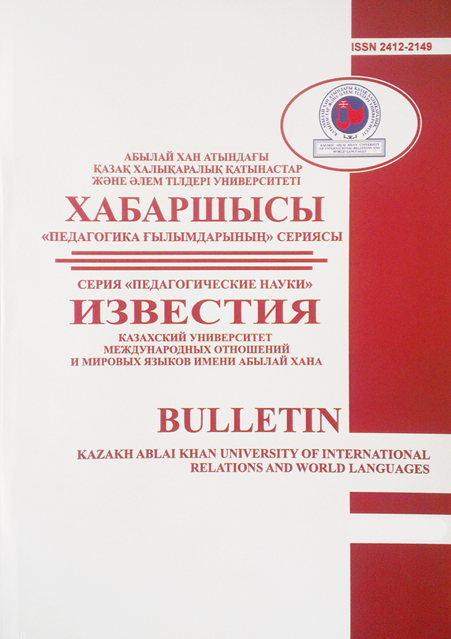ОСОБЕННОСТИ ФОРМИРОВАНИЯ ИНОЯЗЫЧНОЙ ПРОФЕССИОНАЛЬНО- ОРИЕНТИРОВАННОЙ КОМПЕТЕНТНОСТИ ЮРИДИЧЕСКИХ СТУДЕНТОВ НА ОСНОВЕ CASE STUDY
DOI:
https://doi.org/10.48371/PEDS.2020.58.3.009Ключевые слова:
иноязычная подготовка, иноязычное образование, преподавание иностранных языков, профессионально-ориентированная иноязычная подготовка, будущие юристы, профессиональная лингводидактика, кейс-стади.Аннотация
В статье рассматривается проблема определения понятия “профессионально ориентированная Иноязычная подготовка будущих юристов”, в частности, раскрывается дифференциация понятий “Иноязычная подготовка”, “иноязычное образование” и “преподавание иностранных языков”, определяются цель и содержание иноязычного образования и преподавания иностранных языков, а также особенности иноязычного образования будущих юристов. Понятие профессионально ориентированной иноязычной подготовки анализируется и определяется учеными как процесс обучения иностранным языкам, ориентированный на формирование иноязычной профессиональной компетентности для решения профессиональных задач в своей сфере. В статье представлены ключевые факторы профессионально ориентированной иноязычной подготовки будущих юристов (когнитивно-информационный, лингвистический, профессиональный, психолингвистический, содержательный и структурный). Ведущая роль иноязычного образования заключается в эффективном общении, культурном самосознании, умении работать и адаптироваться в многоязычных и поликультурных коллективах и высоком уровне коммуникативной компетентности, которые рассматриваются в качестве ключевых требований кадровых стратегий работодателей.









